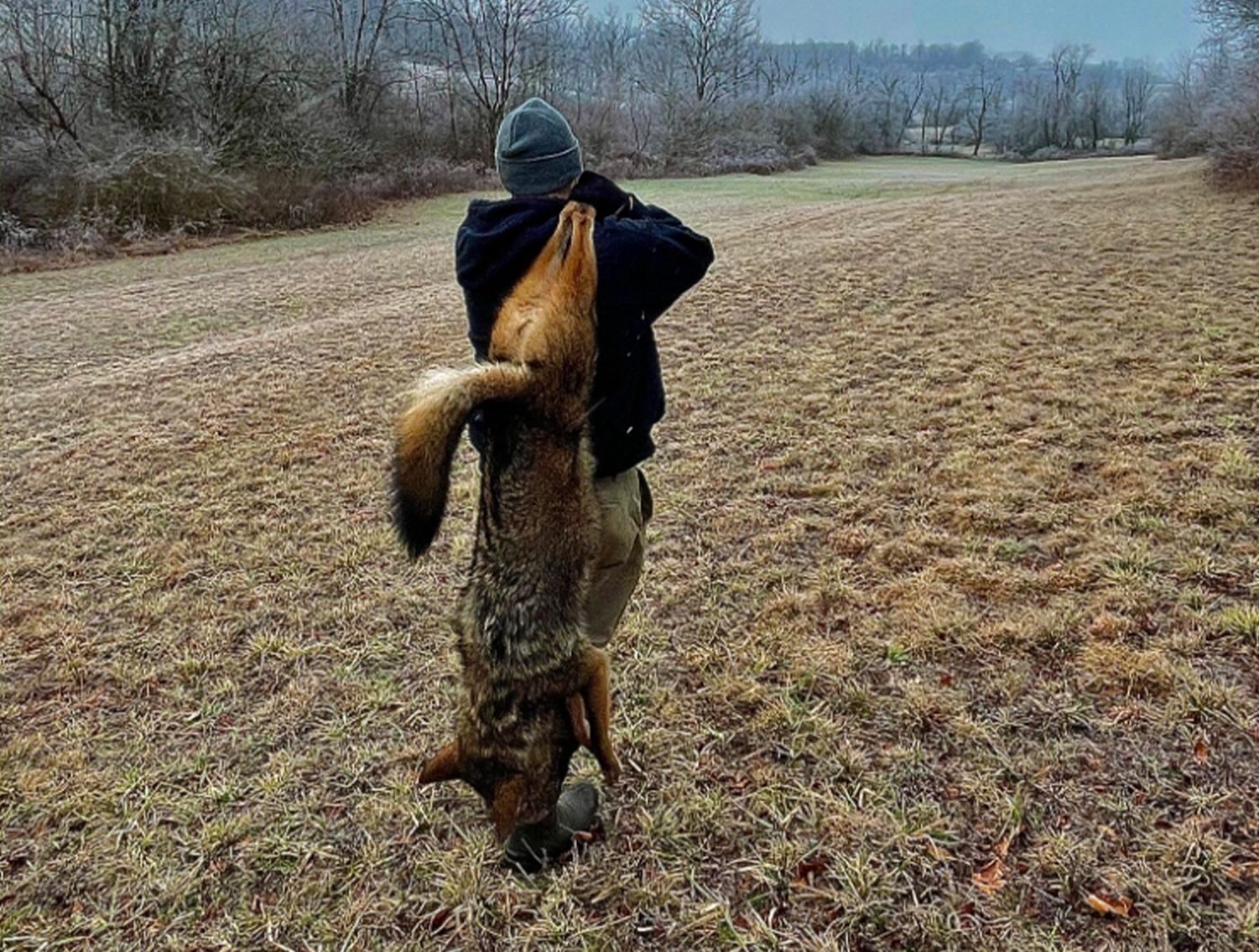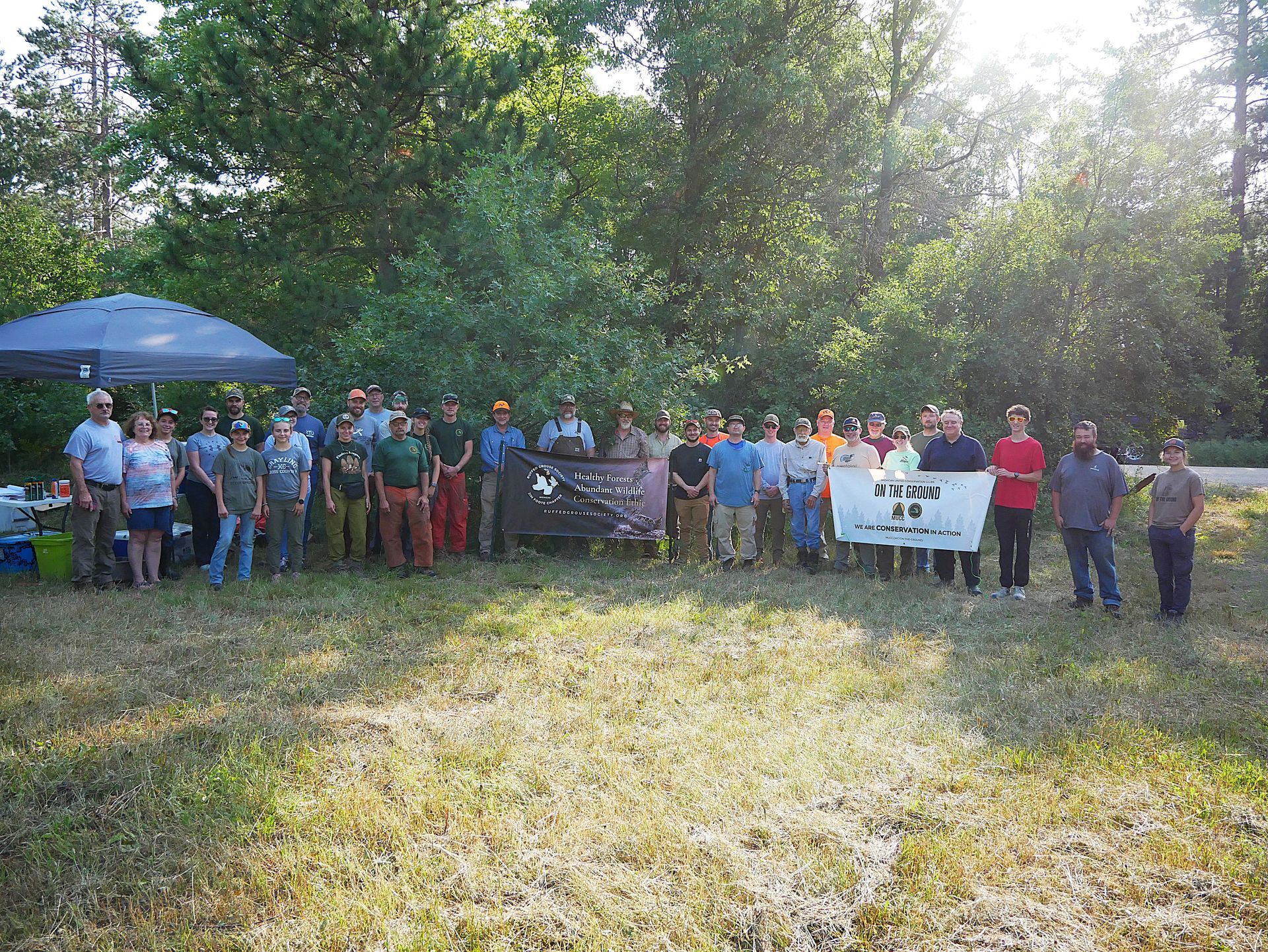Conservation organization votes to support year-round coyote hunting, establish moose season at annual convention
Michigan hunters, anglers and trappers converged on Sault Ste. Marie last weekend to pass their policy agenda for years ahead.
More than a dozen grassroots policy positions were passed as part of the Michigan United Conservation Clubs (MUCC) Annual Convention, including affirmation of support for year-round coyote hunting and establishing a moose hunting season.
Convention attendees included affiliate clubs and individual members. Natural Resources Commission (NRC) Chair Tom Baird and Department of Natural Resources (DNR) chiefs Sara Thompson (wildlife division) and Randy Claramunt (fisheries division) were in attendance. DNR Legislative Liaison Taylor Ridderbusch gave Saturday’s keynote, focusing on funding conservation in perpetuity.
Michigan’s NRC has been considering partially closing year-round coyote hunting since early 2024. In a unanimous vote on Saturday, MUCC members made clear that the organization does not support closing the season and that there is no biological evidence to support such a closure.
MUCC Chief Executive Officer Amy Trotter said the organization’s stance on closing the coyote season is “abundantly” clear.
“No scientific evidence has been presented to justify the closure of the coyote hunting season, and the NRC has an obligation to oppose this part of the order in accordance with Proposal G and the authority it provides to them,” Trotter said. “If enacted, it will make the fight to defend lethal wildlife management that much harder.”
In total, MUCC members passed 15 resolutions, rejected three and one was withdrawn. The full list of passed resolutions can be found here. An antler point restriction resolution elicited the most debate before failing to achieve the two-thirds majority necessary for adoption. The delegation also voted to increase boater registration fees to fund boat access sites and launches.
Awards and Elections
Saturday evening, members and supporters recognized conservationists among them for their achievements. The Flat Rock Sportsman Association and Huron River Fishing Association received affiliate club of the year for their work on a fish ladder. Eric Braden received the fisheries conservationist of the year award, and Dean Hall received the Sue Pride Unsung Hero Award. Former MUCC employee Shaun McKeon received the Rising Star of Conservation Award.
Western Michigan resident Rob Miller ascended to the presidency, and former Region 2 Director Steve Dey was elected vice president. Miller will remain president for two years before Dey ascends to the presidency and a new vice president is elected.
Various other executive board and Conservation Policy Board positions were filled over the weekend. For more information, stay tuned to the corresponding websites.
Fundraising
MUCC received more than $8,000 in donations at the event and two affiliate clubs, the UP Whitetails of Marquette County and Lake St. Clair Walleye Association, challenged other clubs to support MUCC by donating $2,500 each.
As the organization works to engage Michigan conservationists better, being creative with event opportunities and fundraising will be critical, said Steve Windom, director of development and membership.
“Keeping the momentum from the convention rolling into our other conservation fundraising events will help keep our brand elevated to the top of folks’ minds,” Windom said. “MUCC has lots of exciting, new ways to engage in 2024 — we hope to see you.”
Recent Posts



